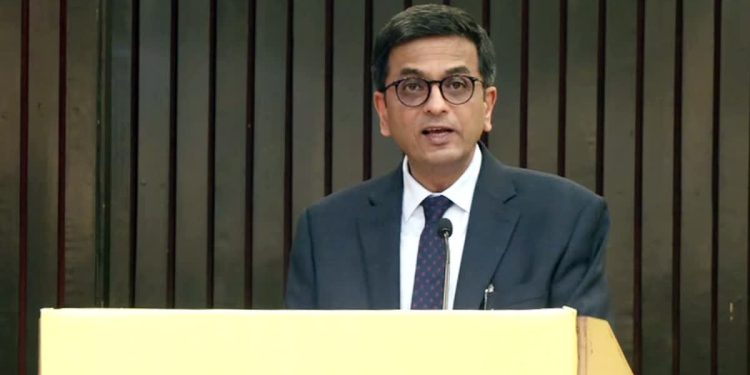In a landmark address at the J20 Summit in Brazil
Chief Justice of India (CJI) DY Chandrachud highlighted the transformative role of Indian courts as democratic spaces. His speech resonated globally, shedding light on how the judiciary in the world’s largest democracy functions as a beacon of justice and inclusivity.
Evolution of the Indian Judiciary:
Since India’s independence in 1947, the judiciary has undergone significant evolution, grappling with post-colonial challenges while addressing contemporary socio-economic issues. CJI Chandrachud emphasized this evolution in his address, highlighting how Indian courts have progressively embodied democratic principles by striving to uphold the constitutional mandate of justice, liberty, equality, and fraternity. From its early years of establishment to the present day, the Indian judiciary has played a pivotal role in shaping the nation’s legal landscape and safeguarding democratic values.
Accessibility and Inclusivity:
One of the key aspects underscored by CJI Chandrachud is the importance of accessibility and inclusivity within the Indian judiciary. Initiatives such as the digitization of court records and the introduction of e-filing systems have democratized access to justice. These technological advancements have not only expedited judicial processes but also enhanced transparency and accessibility for the common citizen. Furthermore, public interest litigation (PILs) has broadened the scope of judicial intervention in societal issues, allowing ordinary citizens to approach the courts on matters of public interest.
Judicial Independence:
At the heart of a democratic judiciary lies the principle of judicial independence. CJI Chandrachud reiterated the paramount importance of judicial independence as a cornerstone of democracy. Indian courts have maintained a delicate balance between independence and accountability, ensuring freedom from external influences while remaining answerable to the public. This balance is vital for maintaining public trust and upholding the rule of law.
Promotion of Social Justice:
The promotion of social justice has been a forefront agenda for Indian courts. Landmark judgments on LGBTQ+ rights, women’s rights, and environmental protection reflect the judiciary’s commitment to democratic values. CJI Chandrachud emphasized that these decisions serve not only as legal milestones but also as significant steps towards creating a more equitable society. By interpreting laws and upholding constitutional principles, the Indian judiciary has played a transformative role in advancing social justice.
Challenges and Reforms:
Acknowledging the challenges facing the Indian judiciary, including the backlog of cases and the need for judicial reforms, CJI Chandrachud emphasized the necessity for continuous efforts to enhance the efficiency and responsiveness of the judicial system. The backlog of cases, in particular, remains a formidable obstacle, despite efforts to improve case disposal rates. Judicial reforms aimed at streamlining processes, enhancing infrastructure, and addressing issues of judicial vacancies are crucial for bolstering the effectiveness of the judiciary.
Role of Technology:
Technology has emerged as a powerful tool for modernizing the Indian judiciary. The digitization of court records, introduction of e-filing systems, and initiatives such as online dispute resolution mechanisms have revolutionized access to justice. However, there is further potential for leveraging technology to improve the efficiency and transparency of judicial proceedings. Virtual courtrooms and other technological innovations can expedite the resolution of cases and reduce the burden on traditional courtrooms.
Judicial Education and Training:
In his address, CJI Chandrachud also emphasized the importance of judicial education and training in equipping judges with the necessary skills and knowledge to adjudicate effectively in a rapidly changing legal landscape. Continuous professional development programs and initiatives aimed at promoting judicial excellence are essential for maintaining the integrity and competence of the judiciary.
Conclusion:
In conclusion, CJI DY Chandrachud’s address at the J20 Summit underscored the critical role of Indian courts as democratic spaces. From ensuring accessibility and inclusivity to upholding judicial independence and promoting social justice, the Indian judiciary stands as a beacon of democracy. As India continues its democratic journey, the judiciary’s role remains indispensable in safeguarding democratic principles and ensuring justice for all. Efforts to address challenges, implement reforms, and leverage technology will further strengthen the judiciary’s capacity to uphold the rule of law and uphold democratic values in the years to come.











